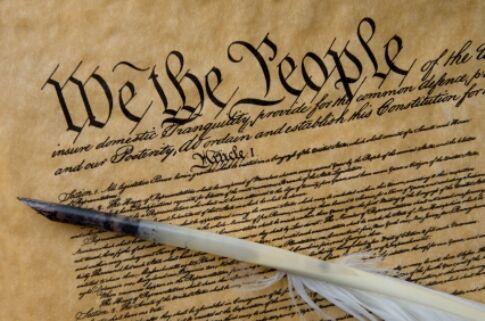“We the People of the United States, in Order to form a more perfect Union, establish Justice, insure domestic Tranquility, provide for the common defense, promote the general Welfare, and secure the Blessings of Liberty to ourselves and our Posterity, do ordain and establish this Constitution for the United States of America.”
Most Americans immediately recognize this passage as the preamble to the United States Constitution. This document serves as the foundation for representative democracy. Without it, America with all its freedoms and rich traditions might not exist, at least as we know it. But its writers and the vanguard who founded America would probably be amazed that it’s still in use today.
The original governing document of the United States was the Articles of Confederation. Written in 1777, this document established a very loose central government with most power at the state level. A full 12 years later, this document was repealed in favor of the U.S. Constitution, but not quite in the form as we know it today. In another two years, the first 10 amendments were added as the Bill of Rights. For the first few decades of our country’s existence, change was the norm. Decisions were made under the assumption that future legislators would change these institutions as the times saw fit.
Writer of the Declaration of Independence and third president Thomas Jefferson was very clear in his belief in the necessity of progress, saying, “that laws and institutions must go hand in hand with the progress of the human mind. As that becomes more developed, more enlightened, as discoveries are made, new truths disclosed, and manners and opinions change with the change of circumstances, institutions must advance also, and keep pace with the times.” Jefferson went as far to suggest that every generation should have its own version of the Constitution and that it should be revised, “every 19 or 20 years.” At 233 years old, the U.S. Constitution is the world’s oldest national constitution still in use today.
If you keep up with politics in America, you’ll hear a lot of strong rhetoric about the Constitution. Someone somewhere is always promising to defend or preserve the Constitution or they’re arguing that their opponent wants to destroy and defile it. The fact of the matter is that the Constitution was never meant to be preserved for this long. Many of the country’s founders were against needlessly maintaining traditions for the sake of tradition. They instead opted for radical change wherever necessary. The Founding Fathers fought against the status quo and the old ways of doing things. America was in many regards an experiment. If they had stuck to tradition and preserving the laws and values of their forefathers then they would have stayed content in their place as British subjects.
Figures like Thomas Paine were extremely radical not just for their time but even for today. Paine found himself as a magazine editor in Philadelphia after traveling to the New World on his friend, Benjamin Franklin’s advice. Paine was very critical of his government, society and traditions, penning works like Humanus. In this work, Paine railed against the institution of slavery and British colonialism. Paine was urged to write his pamphlet Common Senseby the future signer of the Declaration of Independence, Benjamin Rush. This pamphlet listed arguments why the colonies should rebel for their independence and is considered to have been a vital spark for the American Revolution. In further writings, Paine advocated for a version of universal basic income and a robust welfare system, saying, “The Aristocracy are not the farmers who work the land… but are the mere consumers of the rent.” These ideas do not sound like the ones spoken by those rallying to protect and preserve the Constitution and the ideas of the Founding Fathers. No doubt, if Paine were alive today they would brand him as a socialist and radical, intent on destroying traditional values.
George Washington was our first and only president to run without a political party. In fact, he was thoroughly opposed to the idea, believing “cunning, ambitious” men would use them to destroy the country for their benefit. To see today how partisan gridlock halts progress and how a representative’s vote is dependent on a letter by their name and not their best intentions, his fears would be realized.
Many of those who signed the Declaration of Independence and Constitution had no intention of conserving the past. Instead, they looked to change the future. This spirit and mindset allowed the United States of America to achieve the great things it has. Innovation, experimentation, the inclusion of more people to inalienable human rights and liberties are all things that we’ve had to strive towards, not return to. Instead of relying on an outdated foundation, we need to make changes for the future. To do this we need to recognize that those often the most focused on “preserving the Constitution” are not acting with the Founding Fathers’ true spirit or intentions in mind.
Zachary Freeman is an anthropology junior and opinion writer for The Battalion.





















